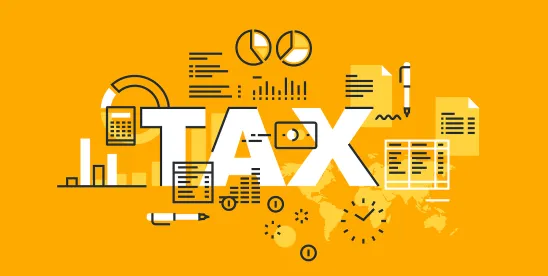Key Takeaways:
- The “One Big Beautiful Bill Act” (OBBB) makes key Trump-era tax cuts permanent, including the qualified business income deduction, increased standard deduction and reduced top individual tax rate.
- The OBBB expands small business incentives like full expensing for R&D and bonus depreciation, raises reporting thresholds for 1099-Ks and independent contractors, and enhances exclusions for qualified small business stock.
- This introduces new individual deductions for tips, overtime, seniors and car loan interest, while increasing the SALT deduction cap and child tax credit.
- The OBBB will accelerate the expiration of major clean energy tax credits, cutting short incentives for electric vehicles, energy-efficient home improvements and residential renewable energy installations.
On July 4, 2025, President Donald Trump signed the OBBB into law. The OBBB extended or made permanent many of the tax provisions of the 2017 Tax Cuts and Jobs Act (TCJA), which were set to expire on December 31, 2025.
The OBBB included other key tax provisions including retaliatory measures against foreign countries that enacted “unfair foreign taxes”, an increase in the cap on state and local tax (SALT) deductions, full expensing for R&D and capital investments, enhancements to the Qualified Opportunity Zone incentives and significant modifications to the energy credits enacted under the Inflation Reduction Act (IRA).
Summary of Key Provisions of the OBBB
1. Provisions Affecting Businesses
Extension and Enhancement of Deduction for Qualified Business Income
Previously, an individual who owned an equity interest in an entity treated as a partnership for tax purposes, owned shares in an S corporation or operated a business as a sole proprietorship was entitled to a deduction equal to 20% of qualified business income. This deduction was also available in the case of REIT dividends and income from a publicly traded partnership. Prior law also imposed a limitation on the deduction amount for certain taxpayers having taxable income in excess of designated “threshold amounts.” This deduction was one of the many provisions that was scheduled to expire at the end of 2025 under the TCJA.
The OBBB makes the deduction for qualified business income permanent. The OBBB also modifies the phase-in wage and investment limitation to $75,000 for non-joint returns and $150,000 for joint returns, and creates a minimum deduction of $400 for taxpayers with $1,000 or more of active qualified trade or business.
Full Expensing for Certain Business Property
Under prior law, certain taxpayers were permitted to deduct an “applicable percentage” of the cost of “qualified property” in the taxable year in which the property was acquired (often described as “Bonus Depreciation”). As originally enacted in the TCJA, the percentage of the cost of “qualified property” in the taxable year in which the property was acquired was equal to 100% with this percentage decreasing in each subsequent year (with the percentage decreasing to 20% for “qualified property” placed in service in 2026).
The OBBB extends the applicability of “bonus” depreciation for certain qualified property and reintroduces the deductible percentage “qualified property” as being 100% for property placed into service after January 19, 2025.
Full Expensing of Domestic Research and Experimental Expenditures
Under prior law, research and experimental expenditures had to be deducted over a five year period. Prior law also provided that the period for deduction was extended to 15 years for research and experimental expenditures attributable to research conducted outside of the U.S.
The OBBB changes these rules to provide that certain types of research and experimental expenditures are costs that can be immediately deducted in full in the taxable year in which they are incurred. This would apply to tax periods after December 31, 2024. The OBBB also provides for retroactively expensing R&D back to December 31, 2021 for certain small businesses meeting a “gross receipts” test. Further, for any expenditures that were paid or incurred in taxable years beginning after December 31, 2021, and before January 1, 2025, a taxpayer can elect to deduct any remaining unamortized amounts with respect to such expenditures over a one or two-year period after December 31, 2024.
Modification of Limitation on Business Interest
Under prior law, the deduction for business interest expense was subject to a limitation which, in part, was measured by 30% of earnings before interest and taxes (EBIT). The OBBB changes this limitation so that the limitation would be measured, in part, by an amount equal to 30% of earnings before interest, taxes, depreciation, amortization or depletion (EBITDA). Under the OBBB, this change would apply to tax years beginning after December 31, 2024.
Special Depreciation Allowance for Qualified Production Property
Under prior law, owners of nonresidential real property had to depreciate the cost of such property over a 39-year period. Under the OBBB, the cost of acquiring or improving nonresidential real property that is “qualified production property” would be currently deductible.
For purposes of this proposal, the term “qualified production property” includes nonresidential real property that: (a) is used by the taxpayer as an integral part of a “qualified production activity;” (b) is placed in service in the U.S. or a U.S. possession; (c) the original use of which commences with the taxpayer; (d) the construction of which begins between January 19, 2025 and January 1, 2029; and (e) is placed in service before January 1, 2031. A “qualified production activity” is defined in the OBBB as manufacturing, production (but only of agricultural production and chemical production) or refining of a “qualified product” which is generally defined as tangible personal property.
Under the OBBB, recapture rules will apply if the use of the property changes in the first 10 years that the property is placed in service.
Permanent Renewal and Enhancement of Opportunity Zones
The TCJA created the opportunity zone provisions to create economic investment in distressed communities, which are census tracts meeting certain qualifications and designated by the government as “opportunity zones.” Under the TCJA, taxpayers could generally make qualifying investments in opportunity zones only through June 30, 2027. Under prior law, taxpayers making qualifying investments of capital gain were eligible to defer recognizing that capital gain until December 31, 2026, could get reductions in the amount of gain recognized and, if they held investments for at least 10 years, could sell those investments with no additional tax liability. The OBBB does not extend the recognition date for capital gain investments made in the original investment period — they will still be recognized on December 31, 2026.
The OBBB makes the opportunity zone program permanent. New opportunity zones will be chosen in 2026, and then every 10 years thereafter. The new law also provides for new investment periods. The first new investment period will begin on January 1, 2027 and run through 2033. After that, investment periods for specific opportunity zone designations will run from January 1, 2036 for 10 years, and new investment periods begin with years ending in six. This appears to create a “hole” from 2033-2036 when no new investments can be made. The OBBB narrows the definition of “low income community” somewhat, and so certain existing tracts would not be eligible for investments during the new investment period.
As under the TCJA, the OBBB allows investors making qualifying investments of capital gain to defer tax on capital gains invested in opportunity funds. Capital gains invested in the second round must be recognized on December 31, 2033. The OBBB also essentially provides a maximum 10% discount on the gain recognized in 2033 (and in later investment periods) based on the holding period of the investment before the recognition date. The OBBB increases that maximum discount to 30% for investments in rural opportunity zones. The most important tax benefit, allowing investors to sell their investments tax free if held for 10 years, remains. The OBBB also significantly increases reporting requirements in connection with opportunity zone investments.
Increased Dollar Limitations for Expensing of Certain Depreciable Business Assets
Under prior law, a taxpayer could, in lieu of claiming regular depreciation deductions, elect to expense the cost of certain qualifying property in the year it is acquired. The amount that could be deducted was subject to limitations.
The OBBB increases the deduction limitation from $1,000,000 to $2,500,000 for taxable years after 2024. Under the OBBB, this $2,500,000 limit is reduced (but not below zero) by the amount by which the cost of the qualifying property placed into service exceeds $4,000,000.
Repeal of Revision to De Minimis Rules for Third Party Network Transactions
Prior law required third party settlement organizations (e.g. Venmo) to issue Form 1099-K to each payee receiving gross payments exceeding $600 for goods or services.
The OBBB raises this dollar amount threshold from $600 (regardless of the number of transactions made) to $20,000 and requires that the payee must have made at least 200 separate transactions in an applicable tax period in order to be subject to this reporting requirement. In addition, the OBBB exempts transactions that fall under this $20,000/200 transaction limitation from backup withholding.
Increase in Threshold for Requiring Information Reporting With Respect to Certain Payees
Under prior law, the threshold for reporting payments made by a business to an independent contractor or subcontractor was $600.
The OBBB increases the “reportable payments” threshold from $600 to $2,000 and provides an annual inflation adjustment for filing information returns. This provision applies to payments made after December 31, 2025.
1% Floor on Deduction of Charitable Contributions Made by Corporations
Under prior law, corporations were unable to take charitable contributions deductions to the extent that they exceeded 10% of the corporation’s taxable income. Any excess charitable contributions could be carried forward over the next five years.
The OBBB implements an additional “floor” for charitable contributions deductions made by a corporation. The OBBB provides that charitable contributions are also only deductible to the extent they exceed 1% of the corporation’s taxable income. Therefore, under the OBBB, deductible charitable contributions must both exceed a 1% taxable income floor in addition to being caped at 10% of the corporation taxable income. Any Charitable contributions above the 10% ceiling or, in certain circumstances, below the 1% floor may be carried forward for five years of the corporation’s taxable income.
Enforcement Provisions With Respect to COVID-Related Employee Retention Credits
The OBBB retroactively terminates the employee retention tax credit (ERTC) and prevents the IRS from paying any ERTCs claimed after January 31, 2024. Under prior law, eligible businesses could claim the credit until April 15, 2025. Under the OBBB, otherwise valid claims filed after January 31, 2024 will be denied.
The OBBB also extends the statute of limitations to six years for the IRS to audit and potentially make adjustments or denials to ERTC claims, giving the IRS an additional three years to audit such ERTC claims.
The OBBB also adds new penalty provisions for ERTC promoters for failing to comply with due diligence requirements or for aiding and abetting the understatement of tax liability.
Expansion of Qualified Small Business Stock Gain Exclusion
Under prior law, noncorporate taxpayers could exclude 100% of the gain on the sale or exchange of “qualified small business stock” (QSBS) held for more than five years for stock acquired after September 27, 2010. QSBS acquired in earlier years is eligible for either a 50% or 75% gain exclusion. There was a limitation on the amount that could be excluded by the seller of such stock of the greater of $10,000,000 (half of that for married filing separate returns) or 10 times the basis of the stock disposed of by the taxpayer. Further, stock would not qualify as QSBS if the corporation had “aggregate gross assets” greater than $50 million.
The OBBB loosens several of these restrictions to make the exclusion more accessible. First, it introduces a “tiered” exclusion timeline. Specifically, QSBS held for three years is eligible for a 50% gain exclusion, QSBS held for four years is eligible for a 75% gain exclusion and QSBS held for five or more years is subject to a 100% exclusion. Further, the per-issuer limitation is increased from $10,000,000 to $15,000,000, with an annual inflation adjustment (or half of these amounts for married filing separate returns). Last, the aggregate gross asset limit is increased from $50 million to $75 million, with an annual inflation adjustment.
2. Provisions Affecting Individuals, Small Businesses and Universities
Extension of Modification of Rates
The OBBB permanently reduces the highest tax bracket to 37% and provides for inflation adjustments for the 10%, 12% and 22% tax brackets.
Extension of Increased Standard Deduction and Temporary Enhancement
The OBBB permanently increases the standard deduction, which was nearly doubled by the TCJA. For 2025, the standard deduction is $15,750 for single filers, $23,625 for heads of household and $31,500 for married individuals filing jointly. For years after 2025, these amounts will be adjusted annually for inflation.
Termination of Deduction for Personal Exemptions
The OBBB permanently repeals the deduction for personal exemptions. The TCJA suspended the personal exemption deduction, which previously allowed taxpayers to claim a deduction for themselves and their dependents.
Limitation On Individual Deductions for Certain State and Local Taxes, Etc.
Under prior law, individuals were subject to a limitation on the amount of deduction that they could take for state and local taxes. In general, this deduction was capped at $10,000 under prior law ($5,000 for a married taxpayer filing a separate return). The OBBB increases the limitation on individual deductions for SALT from $10,000 to $40,000 (and half of that amount for a married taxpayer filing a separate return).
Under the OBBB, this limitation amount is subject to a 30% phase out where the taxpayer’s modified adjusted gross income is over $500,000 for 2025, $505,000 for 2026 and after 2026 101% of the dollar amount in effect the preceding calendar year (or, for married filing separately, half of this amount). The OBBB prohibits the phase out from reducing the amount of the allowable deduction to be below $10,000.
Extension Of Increased Child Tax Credit
The OBBB permanently increases the child tax credit to $2,200 per child, which will be adjusted annually for inflation after 2025. It is also notable that the OBBB maintains and expands upon the requirement that a child’s social security number (SSN) and the taxpayer’s SSN, and spouse’s SSN for joint filers, be included on the return in order to claim the credit.
Extension of Increased Estate and Gift Tax Exemption Amounts and Permanent Enhancement.
The OBBB permanently increases the estate and gift tax exemption to $15 million for single filers and $30 million for joint filers. The exemption amounts will be indexed for inflation.
Extension of Limitation on Deduction for Qualified Residence Interest
The OBBB permanently reduces the available home mortgage interest deduction, which was reduced from $1 million in home mortgage acquisition cost to the first $750,000 under the TCJA.
Termination of Miscellaneous Itemized Deductions
The OBBB permanently eliminates certain miscellaneous itemized deductions. Prior to the TCJA, individuals were permitted to take deductions for certain expenses such as unreimbursed employee expenses.
No Tax on Tips
Under the OBBB, taxpayers are allowed an above-the-line deduction for “qualified tips” received during the taxable year. Qualified tips are cash tips the taxpayer receives in an occupation which traditionally and customarily receives tips. Qualified tips only include amounts that are (i) paid voluntarily, not negotiated and determined by the payer; (ii) not received in a specified service trade or business as defined in I.R.C. Section 199A(d)(2); and (iii) not otherwise limited by the regulations.
The deduction for qualified tips is limited to $25,000. The deduction phases out for joint filers with adjusted gross income over $300,000 ($150,000 for other filers).
No Tax on Overtime
Under the OBBB, taxpayers are allowed an above-the-line deduction equal to the amount of overtime compensation paid in excess of taxpayer’s regular pay rate. Qualified overtime compensation does not include qualified tips.
The deduction for qualified overtime compensation is limited to $12,500 ($25,000 for joint returns). The deduction phases out for joint filers with adjusted gross income over $300,000 ($150,000 for other filers).
Enhanced Deductions for Seniors
The OBBB provides an additional above-the-line deduction for seniors (taxpayers aged 65 or older) of $6,000 per eligible filer, reduced (but not below zero) by 6% for adjusted gross income exceeding $75,000 ($150,000 married filing jointly).
No Tax on Car Loan Interest
The OBBB creates an above-the-line deduction up to $10,000 for amounts incurred relating to qualified passenger vehicle loan interest during the taxable year. The amount of deductible qualified passenger vehicle loan interest is subject to a phase-out when the taxpayer’s modified adjusted gross income exceeds $100,000 ($200,000 married filing jointly). Deductible interest only applies to applicable passenger vehicles. Applicable passenger vehicles are vehicles which (i) have an original use that commences with the taxpayer; (ii) are manufactured primarily for use on public streets, roads and highways; (iii) have at least 2 wheels; (iv) are a car, minivan, van, SUV, pickup truck or motorcycle; (v) are treated as a motor vehicle for purposes of title II of the Clean Air Act; (vi) have a gross vehicle weight rating of less than 14,000 pounds; and (vii) the final assembly occurs in the United States.
Modification of Excise Tax on Investment Income of Certain Private Colleges and Universities
Previously, applicable educational institutions were subject to tax in an amount equal to 1.4% of the institution’s net investment income. The OBBB implements a tiered system, implementing a tax rate equal to an “applicable percentage.” Under OBBB, the applicable percentage ranges from 1.4% to 8% based on the institutions’ “student adjusted endowment.”
For purposes of the OBBB, student adjusted endowment is equal to the aggregate fair market value of the institution’s assets (not including those directly used in carrying out the institution’s exempt purpose), divided by the daily average number of full-time students attending the institution. Under the OBBB, an applicable educational institution must have at least 3,000 tuition paying students, rather than 500 under prior law.
3. Cutbacks to Renewable Energy Based Tax Credits
Termination of Clean Vehicle Credit
Under prior law, taxpayers could claim a tax credit in an amount up to $7,500 for clean new vehicles placed in service in a given taxable year. The credit is currently set to expire on December 31, 2032. The OBBB accelerates the credit’s expiration date to September 30, 2025.
Termination of Energy Efficient Home Improvement Credit
Under prior law, taxpayers could claim a tax credit for household energy efficient improvements equal to 30% of the value of such improvements. The credit is currently set to expire on December 31, 2032. The OBBB accelerates the credit’s expiration date to December 31, 2025.
Termination of Residential Clean Energy Credit
Under prior law, taxpayers could claim a tax credit for residential expenditures of certain renewable energy property equal to 30% of the value of such improvements. The credit is currently set to expire in 2034. The OBBB accelerates the credit’s expiration date to December 31, 2025.
Termination of New Energy Efficient Home Credit
Under prior law, taxpayers could claim a tax credit for homes built that met certain Energy Star standards. The credit is currently set to expire on December 31, 2032. The OBBB accelerates the credit’s expiration date to June 30, 2026.







 />i
/>i
